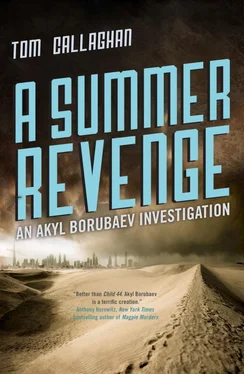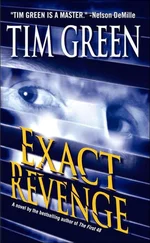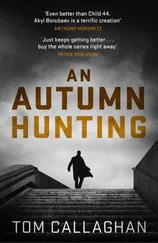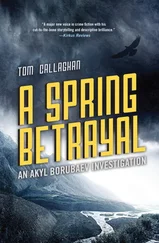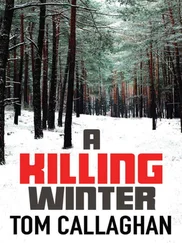“So what do you suggest?” she asked.
“First of all, I think you should give me the memory stick. I don’t know how to access it, so you’re not losing anything. And you’ve probably made a copy anyway. It gives me something to bargain with, to appease Tynaliev.”
Natasha considered this for a moment, nodded. “But it’s not on a memory stick, not anymore.”
“So where is it?”
“I had the Bulgarian geek transfer the information onto a mobile SIM card. Much less conspicuous. Everyone has a mobile, right?”
I could see the logic behind her thinking. And a SIM card would be a lot easier to get through customs, either in Dubai or Bishkek.
Natasha reached into her bag, took out one of those tiny Ziploc plastic bags you can buy in any pharmacy. I could see the SIM card inside. She passed it over, and I slipped it into my shirt pocket.
“How does it work?” I asked.
“There’s a dedicated website that you log onto. You can only reach it via this SIM card. It asks you for a nine-digit number. That gives you access to the encryption processor.”
I nodded as if I understood what she was talking about.
“You then have to dial in a series of three three-digit numbers, and that gives you access to a screen that asks for your code word. You type it in and that allows you to transfer your money.”
“And you’ve changed all the numbers?”
“No, only the code word. But that’s enough to stop anyone getting to the money but me.”
“So you’ll give me the new code word to take back to Tynaliev and hope that he gives up hunting you and lets you have your ten percent?”
Natasha nodded, perhaps more convinced of Tynaliev’s forgiving nature than I was. She paused for a moment, as if deciding to tell me something important.
“Akyl, there’s something you should know.”
“Yes?”
“About Kulayev. Don’t trust him.”
I waited. I looked at her, saw the strength and intelligence that most people missed by staring at her body.
“He’s the man who complained about Nargiza to Atanasov. He got her tortured. He’s responsible for her suicide. And I’m going to kill him.”
I started to tell her I didn’t think that was such a good idea, especially since I didn’t want her to do it with a gun that had my prints on it, but before I could get very far, my phone rang again.
I checked the number. Blocked. This was getting tedious, but I answered.
“Borubaev.”
“Don’t you think she’s a little young for you, Akyl?”
I recognized the voice. Honey drizzled over vanilla ice cream. A voice that belonged to some of the biggest trouble of my career. I listened as the voice gave me instructions, ended the call without speaking.
Natasha looked at me. I shook my head, threw a few notes down on the table, stood up.
“I have to go. I’ll talk to you later, work out how we can get out of this mess. And Natasha? I want my gun back now.”
I made sure no one was watching, palmed the Makarov, tucked it safely away in my pocket. I had a feeling I might need it.
I walked through the mall, past a big supermarket packed with shoppers buying trolley-loads of groceries, and a dozen free-standing booths selling watches, sweets, ice cream and cosmetics, into the covered car park. The air conditioning didn’t reach this far, and I could already feel the heat starting to trickle down my spine. I’d been told to look for a white Porsche Cayenne with smoked windows, parked on its own, as if too proud to sit with the other vehicles. As I approached, I saw that the engine was running.
The driver’s window slid down, and Saltanat Umarova looked across at me, eyes hidden behind wraparound sunglasses, her face unreadable. The sweat that smeared my palms wasn’t caused simply by the heat.
Saltanat had always been a mystery to me, even during the brief time that we were lovers. She ran to her own speed, discarding everything else as irrelevant. I knew she’d been married, that she was brought up in an orphanage, just as I had been; but I hadn’t been trained by the Uzbek authorities to become an assassin, and I didn’t have her knack of evading emotional involvement. I didn’t know if she was here to help me or to kill me.
“Get in.”
No time for pleasantries. Irrelevant.
“Here for the shopping?” I asked, hoping to at least raise a smile.
Saltanat put the car into gear, and we headed for the exit and out onto Sheikh Zayed Road, a motorway in all but name. The traffic was solid, all high-end vehicles: no likelihood of seeing a rusting Moskvitch here. Bishkek seemed a very long way away.
I furtively looked over at Saltanat: dressed in black as always, in spite of the weather. Cool, unruffled, in complete control. A beautiful woman, and one I’d seen put a gun to the head of a treacherous colleague and paint the walls with his brains. I’d been there when she and her former mentor fought with knives in Panfilov Park, watched her walk away, bloody and victorious. I’ve encountered killers, mobsters, rapists, but Saltanat Umarova was more dangerous than all of them put together.
“Where are we going?”
“You’ll see,” was the answer; I knew better than to try to get any more information out of her. The weight of the Makarov in my pocket did a little to reassure me, but I’d seen the speed with which Saltanat could strike. And I knew that I’d have difficulty pulling the trigger on a former lover. I sat back and stared out of the window at the wealth passing by.
The contrast to Bishkek couldn’t have been greater. Every street in the Kyrgyz capital is lined with mature trees that give shade in the summer and shelter in the winter. Despite the broken and uneven pavements, the piles of rubbish, the tired-looking buildings that need a fresh coat of paint or pulling down altogether, there’s a sense of community, of people doing the best they can in a poor country. And wherever you look, there’s the swell of snow-covered mountains in the distance.
In Dubai nobody walks anywhere, and the rare spots with trees, grass or flowers are fed by black plastic pipes that snake across the ground and spray water during the evenings. The skyscrapers twist and turn in elaborate architectural designs that belong in a science fiction movie, separated by patches of sand. No mountains or snow here.
I hadn’t felt comfortable in Dubai since I arrived, but when you’re Murder Squad, it’s hard to feel relaxed wherever you are. You never know what the next hour will bring you, so you never drop your guard.
I adjusted the air conditioning vents to ensure I wouldn’t be an icicle by the time we arrived at wherever we were going. The Porsche was certainly the most luxurious vehicle I’d ever been in; I hoped it wasn’t also going to be my hearse.
I knew that Saltanat was a keen believer in the philosophy of keeping hidden in plain sight, but I couldn’t help being impressed as she drove up to the entrance of a five-star hotel. Not for the first time, I wondered about the size of Saltanat’s expense account.
A valet sprang forward to open the door for her, bowing and scraping as he took the car keys. No one bothered to open my door, but I somehow managed to do it and scrambled down. I’m nothing if not versatile.
The doorman guarding the entrance gave me the sort of look that normally accompanies a raised eyebrow, but I simply gave him an insincere smile and followed Saltanat into the lobby. No ordinary lobby, though; it was smaller than the White House parliament building in Bishkek, but only just. Saltanat made for a long reception desk, collected a plastic pass key, gestured toward a wall of glass lifts. As we hurtled up toward the twenty-seventh floor, Dubai sprawled below us like a creature exhausted by the heat. A haze obscured the middle distance, but I could see the sea, sparkling blue, inviting. When you come from the most landlocked country in the world, it’s difficult not be impressed by the ocean’s sheer size, the idea of freedom and endless possibilities that it suggests.
Читать дальше
